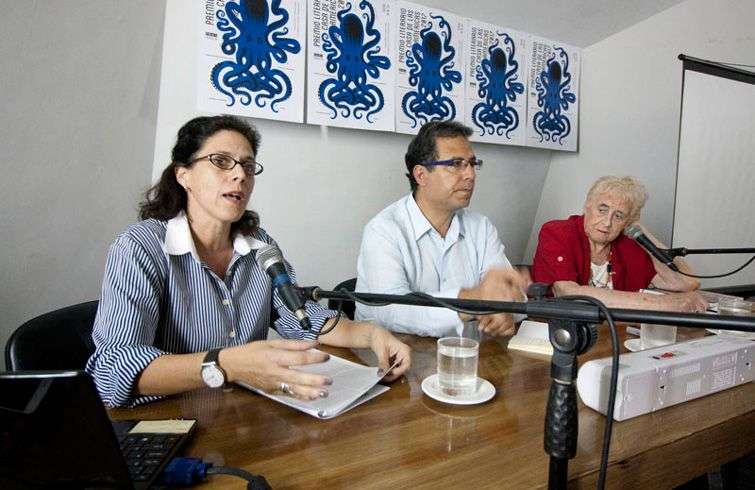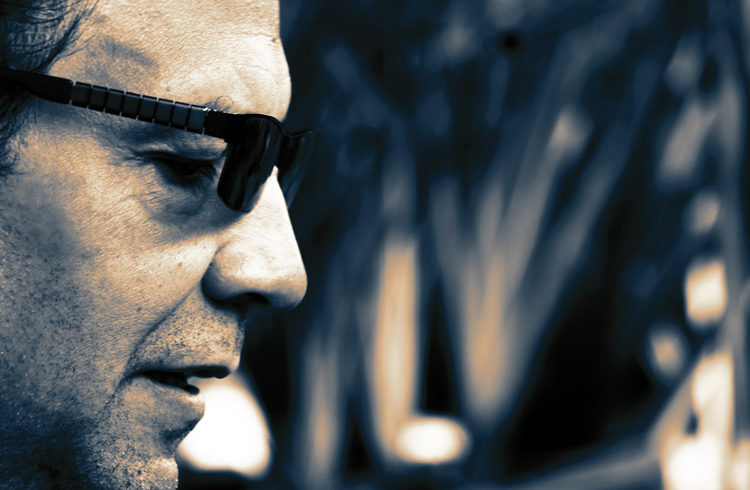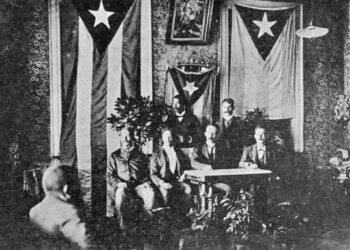In Cuba Alberto Salcedo Ramos feels he’s in his element. He walks as if wanting to grasp everything, enjoy everything, and he greets those who pass by imitating the jargon and accent of the Havanans.
He calls them “consorte” and provokes the conspiratorial smile of those alluded.
He came to the island as a jury member of the Casa de las Américas literary award, whose winners were announced last Thursday, and since the first day he says he felt he was in a warm, familiar place.
“It’s because of the Caribbean,” he says to those of us who met to interview him. “I feel closer to Cubans than to the people of Bogotá, because the latter belong to my country from the political point of view but the Cubans belong to my cultural homeland.”
Salcedo was born in Barranquilla, Colombia, and is proud of being Caribbean. Being born in that region has been key for his professional career, for his fighting tooth and nail to defend a journalism that privileges the narrative, life experiences, human aspects.
“In the Caribbean we are born narrators. This is a mythical territory par excellence, with an enormous oral tradition and an incredible capacity for inventions.”
Salcedo has drunk from that tradition. And he drank well. In the small town of Arenal, where he spent his childhood, he listened to a lot of music – porros, ballenatos – and got used to being informed in the public spaces, through the voice of the town’s women, of the news sung in a lively and close way.
“The newspaper was published in the wind,” he tells us and the phrase has all the flavor of popular poetry.
However, that would not be sufficient, neither his proven talent, to become the chronicler he is today, the author of books and columns in important publications, in the winner of prizes like the Simón Bolívar and the King of Spain. Salcedo Ramos also had to resort to discipline, research reading. The latter, he affirms, has been for him a unique source of learning and also of pleasure.
“If there’s something I vindicate for myself it is being a reader. It’s what I want to be. I want to die with a book in my hand.”

Fortunately, Salcedo has been more than a reader in his 53 years. Narrating is for him a passion and a path at the same time. A path that in turn is a conviction.
“When one reads a paragraph about a tsunami in Thailand that caused 50 dead, that figure seems alien. They are the 50 dead of Thailand. But when you face a story about the drama of those dead, that drama becomes your own, and when you appropriate it you can then better understand it. Journalism became narration because of that: because it needed the capacity of getting closer than what figures, cold and short information, propitiate.
“One tells stories because there are conflicts, because there are problems to be revealed. That is why literature exists, not because it is a decoration. Decoration is a vase. Hemingway used to say that literature was not interior decoration but rather architecture; structure and not ornamentation. And neither is journalism a vase. It has to reveal the problems in the way that most reaches the people. Although not everything can be told with journalism. There are very intimate truths that can only be dealt with if you put on the fiction mask.”
Alberto Salcedo is a narrator by race. He constantly sprinkles his conversation with anecdotes, his own and about others, with phrases learned which he has turned into his in practice.
One of his inviolable subjects is the chronicle. His career, his prestige, his own life have been built to a great extent following the courses of this genre that has helped the continent to reach the top. In its practice he has created a style and a will, and the dialogue inevitably leads to that.
“When I was young I used to hear: ‘the chronicle is finished, it is in crisis, the chronicle no longer exists.’ The chronicle must be the genre whose death certificate has been extended the most. But I didn’t pay attention and I would sit down to work. Then I would hear another also demoralizing phrase: there’s no space to publish. But I didn’t care. I wrote. What I like to do is write. We’ll see what happens later.”
When he speaks of the chronicle, Salcedo refers with admiration to U.S. writer John Hersey, author of the monumental Hiroshima, “one of the peak moments of the genre.” He also refers to U.S. writer Joseph Mitchell, Mexican Juan Villoro, Argentinians Leila Guerriero and Martín Caparrós. In them and others he doesn’t mention to shorten the time, he discovers the core of the chronicler.
“A good chronicler,” he opines, “is the one who has created a work that helps to make visible what wasn’t, to make society know more about itself.”
And Cuba? I ask him, what place does it have in the map of Latin American journalism?
“Oh, well in Cuba there has always existed great narrative talent, that quality of telling stories that maintains you in tenterhooks with a sense of the rhythm and the detail. It has only not been exercised sufficiently in the non-fiction and the tradition has been like dormant. But this country has had great journalists like José Martí, or more recently Leonardo Padura, who to me also seems extraordinary in the non-fiction, although he is known more as a novelist.”
Although teaching also forms part of his life – he is a professor of the Iberian-American Foundation of New Journalism and has given workshops about chronicles in several countries -, Salcedo prefers writing to teaching. His advice is above all to investigate, learn, and not be dazzled by the mirages of technology.
“I like the journalism that is built based on doubt,” he says and affirms that in such a technologized society like the current one a culture of fragmentation has been created that challenges writers.
“People no longer hear a complete song, or see a complete TV program, or read a complete book. And that is something terrible. But one has to continue writing. Because although there are people who no longer read or that do and can misinterpret you, there is also someone touched by your discourse.”
The main thing, he says, is not to lose the compass.
“I never worry about what’s in fashion. Technology is in fashion but, is that what I want? In a dance I don’t necessarily have to dance with the girl everyone wants to dance with. I always try to find out about who I want to dance with and I just do it, without worrying. It’s not a question of turning your back on technology or modernity: I also connect to the Internet; I’m on the social media. But you can’t lose the sense of what you want, of the journalism you want to do.”
More than the support, then, what’s worth are the formation, the dominion of professional knowledge that fertilizes the trade.
“Any citizen can give his/her testimony of something seen in the community but it is not necessarily something qualified from the point of view of journalism. It can be a marvelous testimony, very intelligent, with great sensitivity, but it is not journalism. For this tools are needed, which are the ones the journalist uses when writing his chronicles and feature articles.
“I say that journalism is eternal, I don’t know about the newspapers. Newspapers are surely going to disappear, starting with those who made of journalism a phenomenon of exclusion. Remember what was said by Gilbert Chesterton, who for me gave the best definition of this trade: ‘journalism consists in saying Lord James has died to the people who didn’t know that Lord James was alive.’ Here we remember the musician when he dies, the lady who lives in an isolated one-horse town when a river level rises and floods her home. There are people who only exist for the press when they die. And those media that excluded the people now want to recover them with labels like that of citizen journalism. But, I repeat, what’s fundamental is to write based on knowledge.”
For Salcedo, coming to Cuba as a jury member of the Casa de las Américas literary award is a double pleasure. Because of Cuba and because of the Casa.
“Throughout the years this award has been a happy pretext for writers who did not fit in the commercial circuit to have a way of launching their careers. Casa de las Américas has promoted talent, has protected it, has given it wings, and has generated an extensive bibliography that has allowed us to recognize ourselves, to understand and value what we are.
“Being a jury member has been a great responsibility. I understand that important decisions depend on my opinion and that of my colleagues. I am a writer and I wouldn’t like to find out that my work is not in the hands of a fair and responsible evaluator, who lacks awareness and is not doing his job well. That’s why I received this invitation as an honor.”
At this height of the dialogue, Salcedo has looked at his watch several times. “To do journalism it’s also necessary to have lunch,” he says when he becomes aware that we have become aware. He doesn’t justify himself, he doesn’t feign concern or assumes an arrogant position. He just smiles with Caribbean mischief. “We’ll continue another day,” as a way of saying goodbye and with a light gait he leaves for the restaurant where the other contest jury members are waiting for him.










